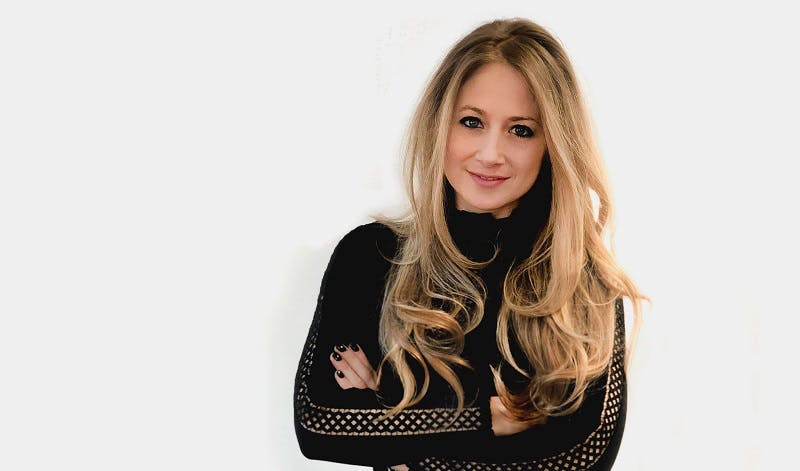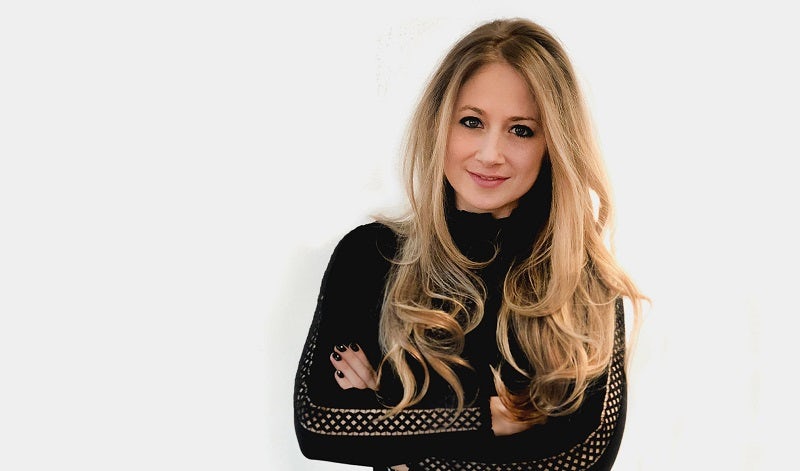Today’s ‘Day in the life’ features Elizabeth Tweedale, CEO and founder of Cypher, an EdTech startup dedicated to teaching children how to code. Elizabeth explains how she has navigated working life throughout the pandemic, and how it has impacted her sector overall.
Please describe your job: What do you do?
I am the CEO and founder of Cypher, a leading EdTech startup dedicated to teaching children how to code through creative themes and real world examples; engaging with children who have a wide range of hobbies and interests, not just tech.
We are a small company of around 15 employees, so my role is diverse. My work spans a wide range day-to-day, and each day can be completely different which I find incredibly exciting. For the most part I lead the strategic direction of the company, evolving our brand, sales function, and technology department.
As well as this, I’m currently overseeing the plans for raising capital in our next funding round, which will be taking place shortly. This follows exponential growth after pivoting to a 100% online offering back in March, successfully changing the business model to adapt to the lockdown situation. In actual fact, we closed our last funding round in June this year, with an investment of £225k, taking our total raise to £670k.
How has your typical day been impacted in the short term by the pandemic?
Like most businesses, the pandemic has definitely changed the way we work. I’m sure I can speak on behalf of everyone at Cypher by saying that I definitely don’t miss the commute!
Back in March, we had to adapt to working from home. Initially, with three kids and a large dog to look after this was a bit of an adjustment period. My situation, like many parents, changed significantly. I was surrounded by the madness of having to juggle running a business, homeschooling my children, and making the transition as smooth as possible for everyone at home and in the company.
Being able to engage and communicate with my employees virtually has helped me to keep an eye on everyone and make sure they’re all coping with the changes. We’ve all tried to help each other over Zoom and have even developed our own virtual coffee programme – which I wrote as a little coding project. Colleagues are randomly paired together and assigned half an hour to catch up – presented in video format from a cute little cat.
Employee well-being is something we take seriously at Cypher. When you’re in the office, it’s easy to see if someone is having a tough day, but online that can be so much harder to spot. By blocking out time in the day for them to just chat to someone outside of work, and asking how they are doing has really helped the team. Not only this, but it has brought us closer together despite being far apart, helping to maintain both morale and company culture at such a vital time.
What trends have you seen in the last few weeks in your sector?
The pandemic has had an immense impact on the education industry, from nursery right through to higher education – nowhere has been left unaffected. Although there have been plenty of difficulties brought on by the pandemic, we can’t forget about the positives that have happened as a consequence. The technological advances we have seen in education have been incredible. Before coronavirus, we noticed that parents would sometimes be resistant to online tutoring, but now it’s totally normal – in fact, it’s encouraged!
Moving forward, parents can see the many benefits online learning can bring, such as our live online classes, which can help give kids greater access to specialist teachers. For example, before the pandemic it was unheard of for six year olds using Zoom (and all its functions including screen share). Children as young as six are now being taught how to do things on their computers, like save their work, access different folders and settings – it’s becoming the norm, which is a real tangible progression!
What changes are you making to help your brand connect with how people are feeling and experiencing the pandemic?
Of everything we do the most important thing is staying connected with our students and parents, especially during this time of uncertainty.
At the height of the pandemic, when parents were really feeling it, we sent out care packages to some of our most loyal parents – just to remind them that they are doing an awesome job! We also introduced our Compass sessions, a complimentary consultation session to discuss where their child is at in their journey and how we can get them to where they want to go.
As well as this, it’s been amazing to support children through this confusing and strange time. Our online camps have acted as a way to escape from reality and catch up with their friends. It has been heartwarming to see their excitement and enthusiasm for coding and spending time with other children online. We even had a few instances where children signed up for a second week of camp, and have requested to be paired with their new online friends!
What are your favourite tools and techniques to help you get your work done at the moment?
We were fortunate to already be using a number of tools that compliment a shift from the office to working from home. We use Teamwork to project manage and keep everyone on track, and Slack for daily communications (which reduces the number of emails between the team quite considerably).
Slack has been key to keeping up regular communications with the team and it speeds up our ability to make quick decisions. I also love the added feature of emojis – they are quick, easy, and add a certain level of fun to my everyday life.
In terms of processes we had to actively encourage our team to take a lunch break – when working from home it’s so easy to stay by the computer or feel that if you step away for a moment you will be seen as not working (but this causes burnout). We encourage team members to change their Slack status to ‘Out for lunch’ or ‘Getting some fresh air’ so they know that it’s okay to take a break, and others won’t expect an instant answer from someone whilst on their break.
We realised a few weeks into the pandemic that our team might not necessarily have the tools at home to work comfortably – we therefore offered a budget for them to request items such as a chair, desk or screen.
Overall, adjusting to working from home is a gradual process and so many people are still balancing life and work in the same place. It’s important to accept that we all have lives and it’s okay if your kids walk in on a call and interrupt you or if the doorbell rings – it’s funny, have a laugh!
Which companies have impressed you during the pandemic?
I may be a little biased, but honestly my team at Cypher has really impressed me. Throughout the last couple of months they have weathered this storm brilliantly, working hard and maintaining a positive outlook. As a company we have gone from what would have been no revenue to transforming our business offering and increasing our revenue by 150%.
I have been so impressed by the number of people who have been able to keep their businesses running despite all odds. It’s difficult to walk down my local high-street in Notting Hill and see so many shops closed, which is why when I head down Portobello market and see businesses and stalls open, it’s so inspiring. The resilience these business owners and staff have shown to keep on working hard in such a difficult time is truly remarkable.
What advice would you give a marketer right now?
A key point is to think about your audience. Any good marketeer understands what their audience wants and uses this as the starting point to build any strategy. Secondly, during these unprecedented times it’s vital to put empathy at the heart of everything – seeing things from your customers’ perspective is ultimately what you are being paid for. So, make it count and really think about how they must be feeling, what problems they’re facing and how you can genuinely help them with those problems. At Cypher, we sent postcards to all our customers at the end of our summer camps reminding them just what awesome parents they are!
Finally, building and maintaining relationships will ensure your success. Give your customers the attention they need for now and, for the future, be accessible and honest. Having clear and regular lines of communication will put you in good stead. By putting empathy at the centre of those communications through sharing stories and being more genuine, people will be able to relate to your company and messaging.
What does long term planning and strategy look like now at your brand?
In a time where the future is uncertain for many businesses we feel extremely fortunate here at Cypher. The success of moving our teaching to 100% online has added an additional product to our range, allowing us to offer different solutions and support the needs of our parents at a time which is also very difficult for them.
The pandemic has highlighted how important it is that all children get the opportunities to learn new skills such as coding. It’s always been extremely important to us that we give more and more children access to Cypher’s offering. To do this, we will be scaling throughout the UK and have started developing corporate partnerships to increase the number of children in schools who will be able to take part in our coding classes, with a specific focus on encouraging more girls to get into coding.
Alongside this, the pandemic has accelerated our growth across the pond in the US, (which was always in the business plan). Currently, we are offering students on the East coast spaces for our online camps and are working to test the US market, with the hope to reach children across America from New York to Los Angeles.








